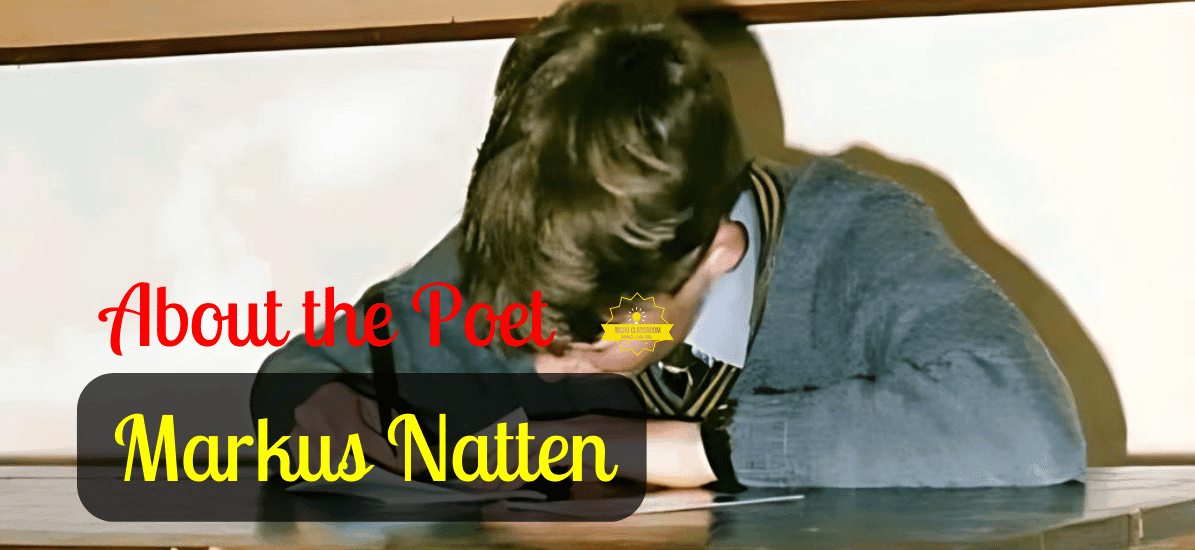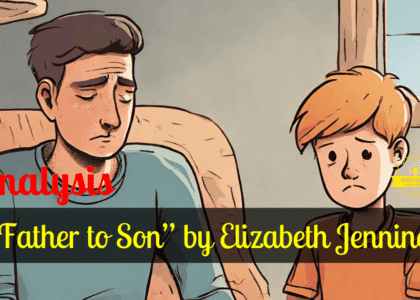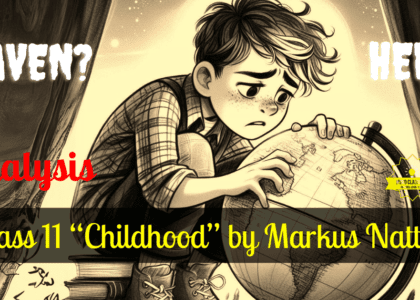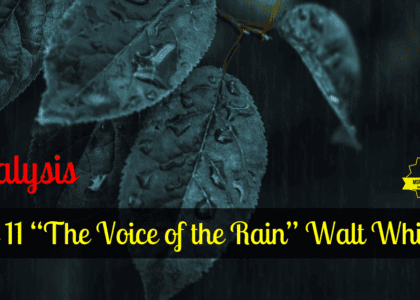As an English educator, I was horrified to discover the level of misinformation passed onto the students without verification and proper research. I found tons of pages ( a hyperbole, right there) on Markus Natten, claiming him to be an Australian or a Norwegian poet. Some have even associated works written by “other Markus” with Markus Natten’s works. Do you know how you can find this out? The timeline of works published and quoted as Markus Natten’s works differ. Surprisingly, a Class XI project on Markus Natten by one of my students made me dawn my research cap and discover the elusive Markus Natten. Let’s see what I found out.
About the poet-Markus Natten
Table of Contents
More Elusive Authors: A.R. Barton, W.W.E. Ross
Also Read: ‘Childhood‘ by Markus Natten
Supplementary Reader: Class 11 ‘Snapshots‘
Markus Natten is an elusive author, and information about his life and works has been challenging to verify and compile. MSRO CLASSROOM has meticulously researched and verified the details presented in this article to ensure accuracy and provide a comprehensive view of Markus Natten’s literary journey.
Markus Natten: A Hidden Gem in the Literary Tapestry of Childhood:
In the vast realm of literature, some voices, though not widely known, carry a resonance that transcends time, Markus Natten, a 12-year-old student at St. Mary’s College in Southampton, Hampshire, United Kingdom, made an unassuming entry into the literary stage with his poems ‘Childhood‘ and ‘Come The Dawn.‘ submitted under the theme of Childhood, these verses emerged as winning entries in the ‘CHILDREN AS WRITERS 20th Year‘ competition, a testament to Markus’s undiscovered poetic brilliance.
Title: Children as writers, 20th year winning entries in the W.H. Smith children’s literary competition
Author: W.H. Smith & Son
Published: London Heinemann 1979
Identifiers: ISBN 0435134086, 9780435134082 Dewey Number 820.809282
Leave us a comment below ????
The year was 1978, and Markus, decided to share his unique perspective on childhood through poetry. The competition, designed to showcase the untapped potential of young writers, featured submissions from across the nation. Markus’s poems, ‘Childhood‘ and ‘Come The Dawn,’ stood out among the entries, earning their place as winning submissions in the W.H. Smith Children’s Literary Competition.
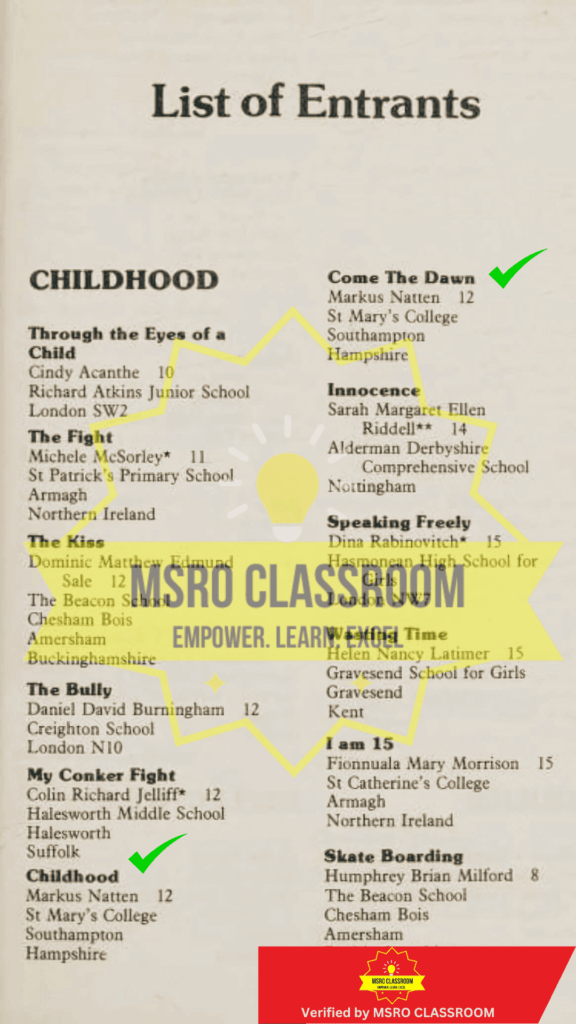
Published in 1979, Markus’s poems carried a universal charm that resonated with readers despite his anonymity in the literary world. ‘Childhood,‘ the first of his winning entries, wove a tapestry of nostalgia, painting vivid images of carefree days and the enchantment of a child’s imagination. Each stanza reflected a poignant longing for the simplicity and purity of youth, demonstrating Markus’s ability to capture the essence of growing up.
In ‘Come The Dawn,’ Markus explored the theme with a nuanced touch, focusing on the transitional moments between night and day. Dawn became a metaphor for the awakening of nature and a child’s consciousness, intertwining the physical and metaphysical aspects of the theme. The poem encapsulated the essence of hope and the promise of new beginnings, showcasing Markus’s ability to infuse depth into seemingly ordinary moments.
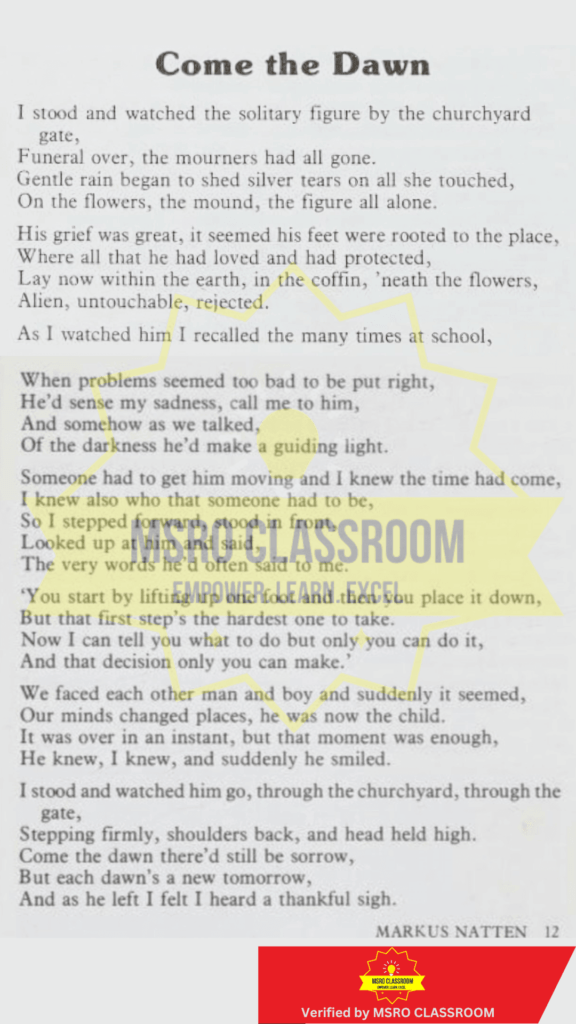
Markus Natten’s triumph in the competition shed light on the nurturing environment of St. Mary’s College, where creativity found fertile ground. The school’s commitment to holistic development, including cultivating artistic expression, was crucial in fostering Markus’s hidden talent. His victory brought pride to St. Mary’s College and emphasised the importance of providing platforms for young, undiscovered voices to shine.
While Markus may not have been a known poet in the broader literary landscape, his poems left an enduring impact on those who encountered them. The success of his entries in the W.H. Smith Children’s Literary Competition inspired budding writers, illustrating that remarkable voices can emerge from unexpected places.
As we reflect on Markus Natten’s poetic contribution, it is evident that the themes explored in his verses are timeless. Celebrating childhood, the unbridled joy of youthful imagination, and the promise of new beginnings are sentiments that resonate universally, regardless of the poet’s fame.
In conclusion, Markus Natten, though not technically a poet, became a hidden gem in the literary tapestry of childhood. His verses, crafted with sincerity and a touch of brilliance, continue to echo through time, reminding us that poetic beauty can emerge from the unexplored corners of the literary world.

